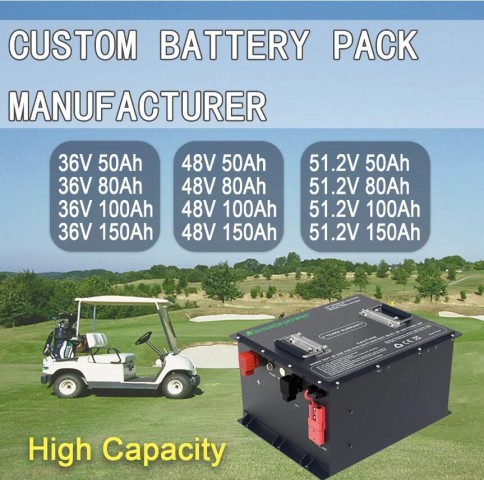In the realm of golf cart operations, batteries play a pivotal role in ensuring smooth performance and reliability. Here’s an extensive exploration of golf cart batteries, covering crucial aspects such as selection, usage, and maintenance.
1. What Types of Batteries are Used in Golf Carts?
Golf carts predominantly utilize two types of batteries: lead-acid and lithium-ion. Lead-acid batteries are widely favored for their cost-effectiveness and stability, particularly in traditional golf courses and budget-conscious environments. Meanwhile, lithium-ion batteries are increasingly popular due to their higher energy density, lighter weight, and longer lifespan, especially suited for high-efficiency applications requiring rapid charging.
2. What is the Lifespan of Golf Cart Batteries?
The lifespan of golf cart batteries varies based on materials and usage conditions. Generally, lead-acid batteries last between 3 to 5 years, while lithium-ion batteries can endure 8 to 10 years with proper care. Extending battery life hinges on factors like charging frequency, operational environment, and maintenance routines. Regular charging and appropriate storage conditions significantly contribute to prolonging battery longevity.
See a more detailed explanation: how long do golf cart batteries last

48V 80AH GOLF CART BATTERY PACK LIFEPO4 BATTERY
3. How to Choose the Right Golf Cart Battery?
Selecting the appropriate battery involves assessing the cart’s power requirements, charging capabilities, driving range needs, and budget constraints. Most golf carts operate on a 12-volt battery system, although specific models and terrain types may necessitate higher-capacity batteries to ensure sustained performance over extended periods, especially on larger courses or challenging terrains.
4. What are the Maintenance Practices for Golf Cart Batteries?
Effective battery maintenance revolves around regular inspections and correct charging protocols. Lead-acid batteries require periodic checks of electrolyte levels and ensuring full charges after each use. Conversely, for lithium-ion batteries, avoiding deep discharges and overcharging is crucial to maintaining optimal performance and longevity.
5. How Long Does it Take to Charge Golf Cart Batteries?
Charging times vary depending on battery type and charger specifications. Typically, lead-acid batteries require approximately 8 to 10 hours for a complete charge, whereas lithium-ion batteries can achieve full charge within 4 to 6 hours. Shorter charging periods significantly enhance operational efficiency and reliability, especially during busy periods at golf courses.
6. What is the Price Range of Golf Cart Batteries?
Battery costs fluctuate based on brand, type, and capacity. Generally, lead-acid batteries range from $500 to $1000 per set, whereas lithium-ion batteries can range from $1000 to $3000 per set. Despite higher initial investments, lithium-ion batteries offer lower long-term maintenance costs due to their extended lifespan and reduced maintenance requirements.
7. How to Replace Golf Cart Batteries?
Battery replacement should be conducted by experienced technicians to ensure safe and efficient operation. Prior to replacement, it’s crucial to disconnect the power source and adhere to manufacturer guidelines. Regularly replacing aging or underperforming batteries enhances cart reliability and operational efficiency.
8. What Range Can Golf Carts Achieve on a Full Battery Charge?
The driving range of golf carts is directly influenced by battery charge levels. Typically, fully charged lead-acid batteries can cover approximately 25 to 30 kilometers, while lithium-ion batteries can extend the range to 40 to 60 kilometers. These figures vary based on cart specifications, load capacity, and terrain conditions.
9. What Environmental Benefits Do Golf Cart Batteries Provide?
Lithium-ion batteries offer superior energy efficiency and environmental benefits compared to lead-acid counterparts. With higher energy densities and no emission of harmful substances, lithium-ion batteries align with modern environmental standards focused on sustainability. This positions them competitively in environments where environmental consciousness and sustainable practices are paramount.
10. Which Brands Are Most Preferred for Golf Cart Batteries?
Brands such as Trojan, US Battery, Kamada Power Golf Carts Battery, and Interstate are highly esteemed among golf course managers and fleet operators for their reliability and performance. These brands not only offer a diverse range of products but also consistently invest in battery technology and innovation.
This comprehensive exploration provides deep insights into the selection, usage, and maintenance of golf cart batteries. It aims to empower golf course managers, golf cart rental providers, and golf enthusiasts in making informed decisions to ensure sustained performance and reliability of their carts.
Media Contact
Company Name: Shenzhen Kamada Electronic Co., Ltd.
Email: Send Email
Country: China
Website: https://www.kmdpower.com/
